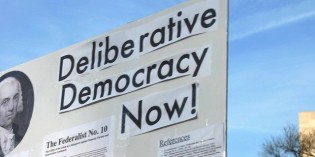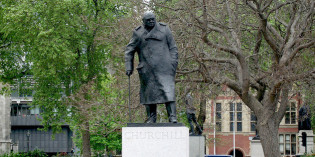Informing and engaging citizens

Deliberation’s domain extends well beyond Parliament
Involve, a think tank and charity which specialises in public participation, recently published a report by Simon Burall on democracy as a deliberative system, inspired by the work of the political scientist John Dryzek who responds to Burall’s work here. Similar PostsInvolve’s ‘Room for a View’ represents an important intervention in the debate on democracy’s future […]

Cabinet participation erodes the distinctiveness of junior coalition partners’ ‘brand’
“Cleggmania” preceded the 2010 General Election, where Nick Clegg saw his and his party’s reputation and poll share sky-rocket following his assured performance in the general election debate. However in 2015, Clegg – as Deputy Prime Minister in a minority government with the Conservatives – was almost universally unpopular, leading his party to a disastrous result […]

The ‘better regulation’ initiative is entrenching corporate dominance over our democracy
Recent revelations about VW cheating emissions tests have underlined the obvious fact that private business interests are not the same as those of the public. Here, Christine Berry describes recent released research by the New Economics Foundation which shows that recent developments have further entrenched the dominance of British and international business over the UK Government. To […]

“Oops I did it again!” Cameron and the Britney Spears Model of Constitutional Reform
Constitutional change in the UK has progressed haphazardly in recent years, and with the benefit of hindsight many of the changes might be considered imprudent or ill-thought through. Matt Qvortrup argues that “Oops, I did it again”, the 2000 hit by pop princess Britney Spears could be a leitmotif in constitutional reforms undertaken by successive […]

Sectarianism in Scotland is about the hard politics of difference
Scotland, and particularly the West of the country, has a reputation for sectarianism, partly fuelled by the football fans of Rangers and Celtic FC in Glasgow. However, despite the widespread perception that it is a problem, most people feel that it doesn’t affect them personally. David McCrone argues that tackling sectarianism where it does exist […]

Deliberative democracy is starting a quiet democratic revolution worldwide
Tomorrow marks the beginning of a series of citizens’ assemblies, organised by the Electoral Reform Society in partnership with academics from Sheffield, Southampton and London, which will be taking place in Southampton and Sheffield over the next month. In this article, Chris Terry discusses the trend of grassroots deliberation which has been gaining momentum since […]

Charismatic and power-driven Prime Ministers are perceived as the most effective by voters
The field of political psychology has demonstrated that there are quantifiable psychological traits that impact the perceived efficacy of political leaders in the US, Russia and specific case studies of individual British Prime Ministers. In a recent study, Sam Rohrer drew on this literature to analyse psychological traits linked to great leadership for 20th century […]

Contemporary politics is far too complex to be understood simply in terms of Left and Right
What does it really mean to be “right” or “left” in England today? Can we be certain that all who identify as conservative are against immigration? Or can we say that anyone opposing Trident is invariably “left”? And can we assume that one can never be both pro-immigration and “right-wing” in economic terms? Jonathan Wheatley […]

Transparency in the private sector is likely to evolve gradually through law, politics and experiment
Transparency discussions invariably focus on the public sector, leaving a significant gap when it comes to the private contractors and companies. In this article, Ben Worthy explores the laws, regulations and technological innovations which are gradually increasing transparency in the private sector. The focus of transparency is almost always on government and public bodies. However, […]



 Democratic Audit's core funding is provided by the Joseph Rowntree Charitable Trust. Additional funding is provided by the London School of Economics.
Democratic Audit's core funding is provided by the Joseph Rowntree Charitable Trust. Additional funding is provided by the London School of Economics.